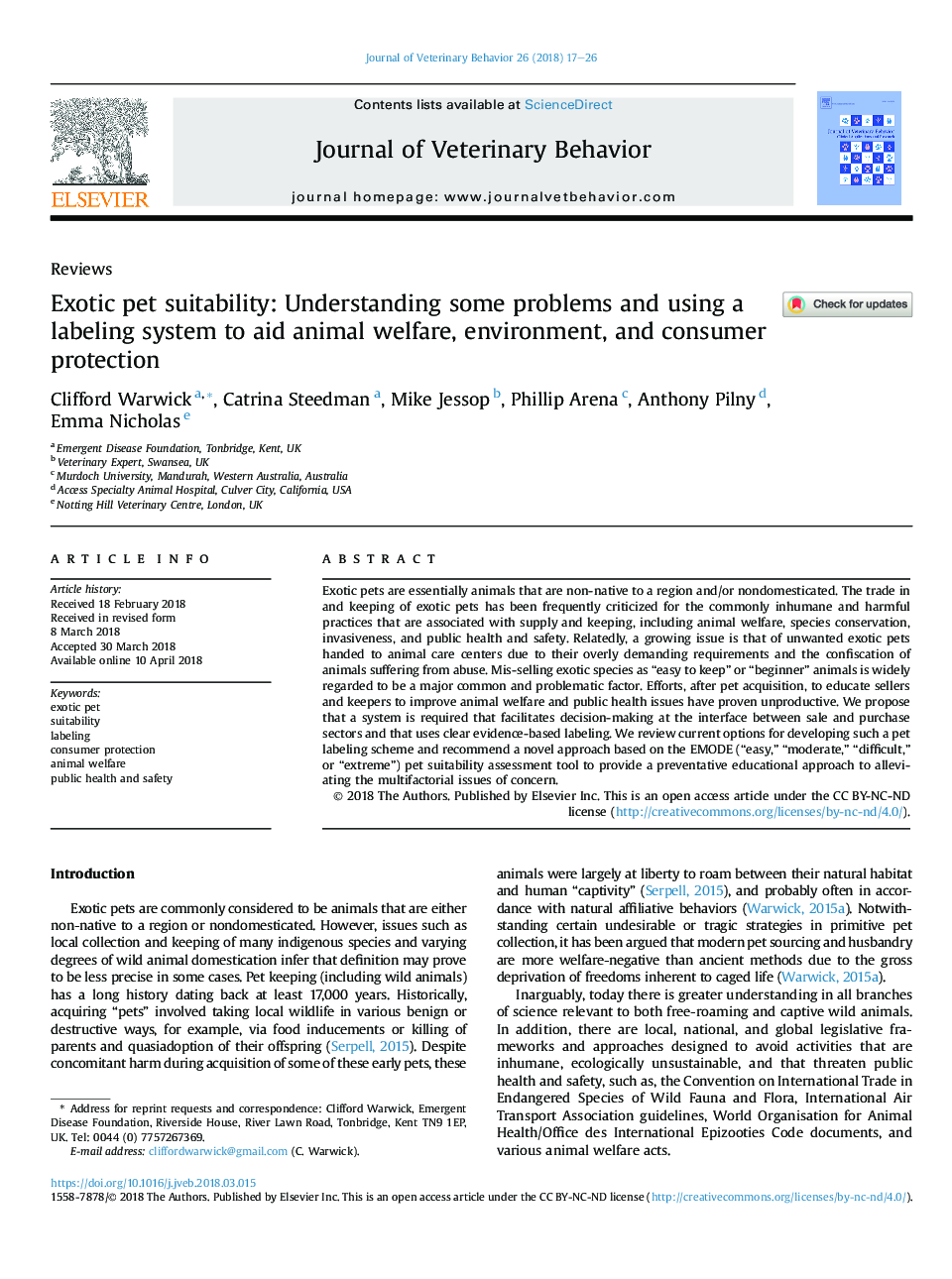| Article ID | Journal | Published Year | Pages | File Type |
|---|---|---|---|---|
| 8484038 | Journal of Veterinary Behavior: Clinical Applications and Research | 2018 | 10 Pages |
Abstract
Exotic pets are essentially animals that are non-native to a region and/or nondomesticated. The trade in and keeping of exotic pets has been frequently criticized for the commonly inhumane and harmful practices that are associated with supply and keeping, including animal welfare, species conservation, invasiveness, and public health and safety. Relatedly, a growing issue is that of unwanted exotic pets handed to animal care centers due to their overly demanding requirements and the confiscation of animals suffering from abuse. Mis-selling exotic species as “easy to keep” or “beginner” animals is widely regarded to be a major common and problematic factor. Efforts, after pet acquisition, to educate sellers and keepers to improve animal welfare and public health issues have proven unproductive. We propose that a system is required that facilitates decision-making at the interface between sale and purchase sectors and that uses clear evidence-based labeling. We review current options for developing such a pet labeling scheme and recommend a novel approach based on the EMODE (“easy,” “moderate,” “difficult,” or “extreme”) pet suitability assessment tool to provide a preventative educational approach to alleviating the multifactorial issues of concern.
Related Topics
Life Sciences
Agricultural and Biological Sciences
Animal Science and Zoology
Authors
Clifford Warwick, Catrina Steedman, Mike Jessop, Phillip Arena, Anthony Pilny, Emma Nicholas,
